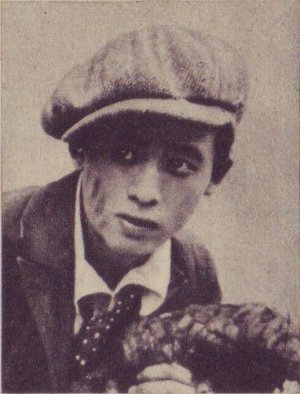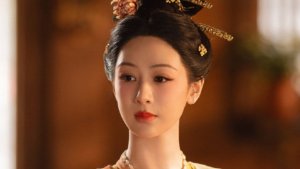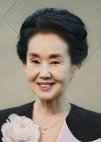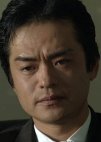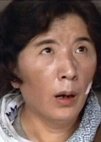Inagaki Hiroshi
- Name: Inagaki Hiroshi
- Native name: 稲垣浩
- Also Known as: いながき ひろし
- Nationality: Japanese
- Gender: Male
- Born: December 30, 1905
- Died: May 21, 1980
Inagaki’s liberal attitudes also led him to produce some unusual films during the thirties and forties: A Thousand and One Nights on the Road (Matatabi sen’ichiya, 1936) transposed Frank Capra’s It Happened One Night (1934) to Japan and apparently supported the common man against the authorities, while The Sea-Crossing Festival (Umi o wataru sairei, 1941), an allegory about the infiltration of a port town by a group of sinister horsemen, has been described by Motohiko Fujita as “the last representative of the liberal spirit in Japanese film until the end of the war.” Even as late as 1943, The Life of Matsu the Untamed (Muhō Matsu no isshō), scripted by fellow liberal, Mansaku Itami, eschewed propagandistic elements in favor of subtle personal drama. In this story of a rickshaw driver’s relations with a widow and her young son, Inagaki elicited a marvelously detailed performance from Tsumasaburō Bandō, and created a delicate balance between humor and poignancy. The result was one of the finest and most moving films produced during the war years.
After the war, Inagaki won international acclaim, including an Academy Award, for his Musashi Miyamoto trilogy (Miyamoto Musashi, 1954–56), distributed in the West as Samurai. This was a well-made but academic remake, starring Toshirō Mifune, of his 1940s film sequence of the same name. His 1958 version of The Life of Matsu the Untamed, again with Mifune, also earned foreign distribution as The Rickshaw Man; though virtually a shot-for-shot remake, it lacked the power and humanity of the original. With Life of a Swordsman (Aru kengō no shōgai, 1959), Inagaki transposed the Cyrano de Bergerac story to the beginning of the Tokugawa era, but in fact some of his most interesting postwar films were set in more recent times. Children Hand in Hand (Te o tsunagu kora, 1948), based, like The Life of Matsu the Untamed, on a Mansaku Itami script, was a compassionate and engaging account of the experiences at school of a child with learning difficulties, a subject that might have appealed to Hiroshi Shimizu. Storm (Arashi, 1956), based on a novel by Tōson Shimazaki, was a delicate and beautifully acted Taisho-era story about a widower bringing up his young sons. Geisha in the Old City (“Kottai-san”yori:Nyotaiwakanashiku, 1957) was a complex account of the relationships within a Kyoto geisha house, shot in exquisite color. In its perceptive use of social changes in the old capital as a microcosm of Japan’s postwar evolution, it resembled Kōzaburō Yoshimura’s postwar work, which it almost rivaled for quality.
In the last years of his career, Inagaki continued to produce expertly crafted films in a traditional idiom. Among these, his version of the much-filmed Chūshingura story (1962) was rather pedestrian; but his last big-budget film, Samurai Banners (Fūrin kazan, 1969), a heroic epic chronicling the unification of Japan into a nation state, was given a certain poignancy by the performance of Toshiko Sakuma as the princess whose happiness is sacrificed on the altar of national unity. By the seventies, Inagaki was judged old-fashioned and found himself unemployed. It was an ironic fate, since the last film he directed, Ambush (Machibuse, 1970), had a distinctly modern tone of absurdism, reminiscent of a spaghetti Western: the hero protects the inhabitants of a besieged teahouse before learning that he was hired to fight for the other side. However, Inagaki’s last contribution to the cinema was nostalgic: in 1978, in collaboration with silent film enthusiast Shunsei Matsuda, he served as producer of a modern silent chanbara, The Worms of Hell (Jigoku no mushi). In recalling the tone of his earliest work, this emphasized the classical consistency of his approach to filmmaking.
(Source: A Critical Handbook of Japanese Film Directors) Edit Biography
Screenwriter
| Title | Rating |
|---|---|
| Rogoku no Hanayome: Kaiketsu-hen | 0.0 |
Director
| Title | Rating |
|---|---|
| Incident at Blood Pass | 8.2 |
| Samurai Banners | 7.5 |
| Chushingura | 7.6 |
| The Yagyu Military Art | 7.0 |
| Loincloth Doctor | 1.0 |
| The Three Treasures | 6.2 |
| Pirates | 2.0 |
| Shirozukin Arawaru | 0.0 |
| Kuroi Uma no Danshichi | 0.0 |
| Soshi Gekijo | 3.0 |
| The Life of Matsu the Untamed | 6.9 |
| Daibosatsu Touge: Suzuka Yama no Maki ~ Mibu Shimabara no Maki | 2.0 |
| Yataro Ryu: Kyorai no Maki | 0.0 |
| The Wandering Gambler | 0.0 |
Screenwriter & Director
| Title | Rating |
|---|---|
| Rise Against the Sword | 7.1 |
| Young Swordsman | 0.0 |
| Daredevil in the Castle | 7.4 |
| Samurai Saga | 7.5 |
| The Rickshaw Man | 7.6 |
| Yagyu Secret Scrolls | 8.0 |
| Samurai III: Duel at Ganryu Island | 7.8 |
| Samurai II: Duel at Ichijoji Temple | 7.8 |
| Samurai I: Musashi Miyamoto | 7.7 |
| Inazuma Zoshi | 0.0 |
| Shanghai Rose | 0.0 |
| Sword for Hire | 7.3 |
| Conclusion of Kojiro Sasaki: Duel on Ganryu Island | 4.0 |
| Wasurerareta Kora | 0.0 |
| The Journey is a Blue Sky | 0.0 |
| Onai Gojuryo | 0.0 |
| Kaigyaku San Roshi | 0.0 |
Original Creator
| Title | Rating |
|---|---|
| Oma wa Nana Ju Nana Man Go | 0.0 |
Movie
| Title | Rating |
|---|---|
|
Jizo Kyo Yurai
Japanese Movie, 1926,
(Support Role)
|
0.0
|
|
Samidare Soshi: Benigara
Japanese Movie, 1924,
[Little boy, Takushin]
(Support Role)
|
0.0
|
|
Jigoku no Buyo
Japanese Movie, 1923,
(Unknown)
|
0.0
|
|
Ore no Shorisa
Japanese Movie, 1923,
(Unknown)
|
0.0
|
TV Show
| Title | Rating |
|---|---|
|
Kouhaku Uta Gassen
Japanese TV Show, 1951, 75 eps
[Judge] (Ep. 9)
(Guest)
|
7.6
|
Trending Articles
'When the Phone Rings' sparks outrage for misrepresentation of Israel-Palestine conflict
News - Jan 5, 2025
A scene from the final episode of When the Phone Rings sparks outrage among international viewers
Former BIGBANG's T.O.P. to address Korean media regarding his 'Squid Game Season 2' role
News - Jan 10, 2025
Former BIGBANG member T.O.P also known as Choi Seung Hyun will finally meet the Korean media to discuss his recent work, Squid Game Season 2.
Zhao Li Ying, Chen Zhe Yuan, Bai Lu, Dylan Wang, and more win at Weibo Awards 2024
News - Jan 11, 2025
Check out the winners of Weibo Awards 2024
Lee Chae Min is in talks to replace Park Sung Hoon in the upcoming K-drama 'The Tyrant's Chef'
News - Jan 13, 2025
Lee Chae Min may replace Park Sung Hoon in the upcoming tvN K-drama The Tyrant's Chef.
ASTRO's Cha Eun Woo will reportedly star alongside Go Min Si in the Hong Sisters' new K-drama
News - Jan 10, 2025
ASTRO's Cha Eun Woo might be the leading man of Go Min Si in a new Hong Sisters K-drama.
'Flourished Peony' embroiled in controversy over unauthorized use of makeup and styling concepts
News - Jan 13, 2025
Full details inside
Song Hye Kyo on how she addresses rumors, hate comments; her beauty secrets, and more
News - Jan 9, 2025
Song Hye Kyo opens up about how she's changed from the past, how she addresses rumors about her and more.
Go Min Si is confirmed to lead a new Hong Sisters K-drama!
News - Jan 9, 2025
Go Min Si is the next muse of the famous writers Hong Sisters (Hong Jung Eun and Hong Mi Ran).

